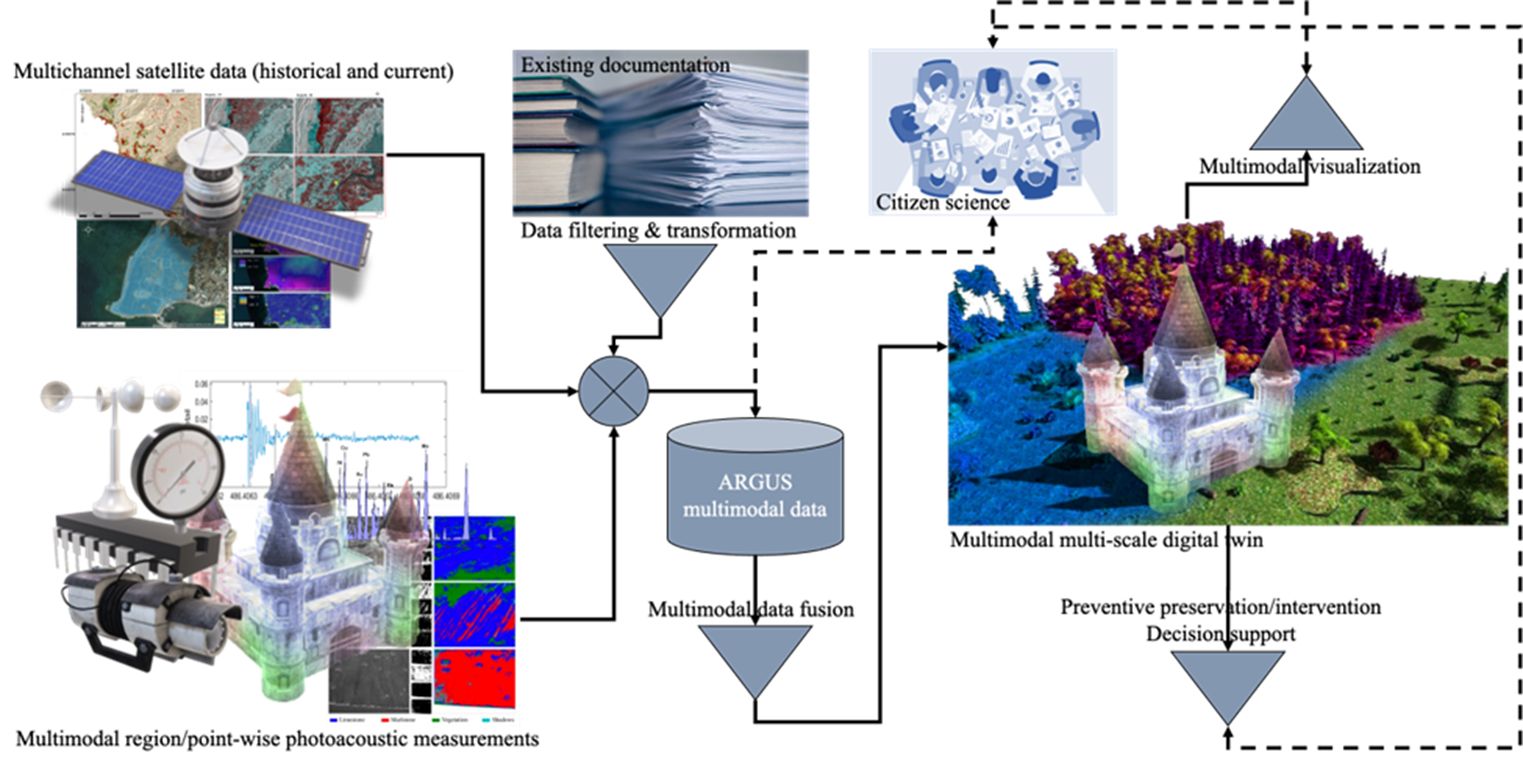The ARGUS project tackles several pressing challenges in the preservation of remote-built heritage assets. A key difficulty lies in the effective monitoring of these assets, many of which are located in areas difficult to access regularly or thoroughly with current technology. This makes preventive preservation critical but challenging to implement effectively. Moreover, the project aims to address the limitations in current methods that struggle to integrate and analyze multi-modal and multi-scale data crucial for comprehensive monitoring. There's also a significant need for non-destructive techniques in physical and chemical monitoring, as traditional methods can be invasive and potentially harmful to heritage sites. Additionally, there's a gap in the ability to accurately model and predict environmental and anthropogenic threats that could impact these sites. The effective fusion of diverse data types, from climate and pollution data to on-site measurements and governmental statistics, poses another complex challenge. Lastly, ensuring that AI-driven decision-support methods are trustworthy and transparent is essential for gaining the confidence of stakeholders and effectively guiding preservation efforts.
The ARGUS project is developing a digital twin model and an advanced digitization strategy that supports detailed and scalable data integration. Essential to this development is a robust data collection framework that ensures data from diverse sources and scales is effectively integrated, cleaned, and enriched for analysis.
Key innovations include AI-driven methods for the identification of threat factors and their impacts to allow for predictive analytics and risk mitigation. Furthermore, ARGUS is enhancing non-destructive monitoring techniques through the integration of miniaturized sensors and AI-powered data fusion methods by combining remote sensing data with on-site measurements and historical documentation. These efforts are supported by a security-by-design approach to ensure data integrity and privacy.
The project also focuses on developing a decision support system (DSS) that offers real-time actionable insights and predictive preservation strategies to ensure timely interventions that minimize risks to heritage structures. The DSS and other analytics tools are designed to provide user-friendly interfaces for various stakeholders and make complex data analyzable and actionable.
Notably, FIT is leading the efforts on integrating multimodal data and constructing a robust continuous data system to ensure the effectiveness and trustworthiness of AI solutions in Work Package 5 and also spearheads the strategy for data collection and manipulation in Task 3.1.

